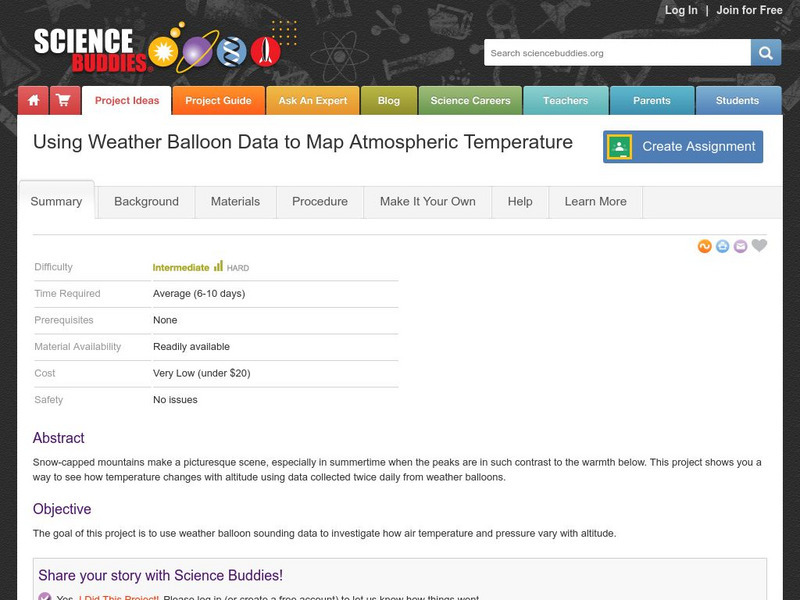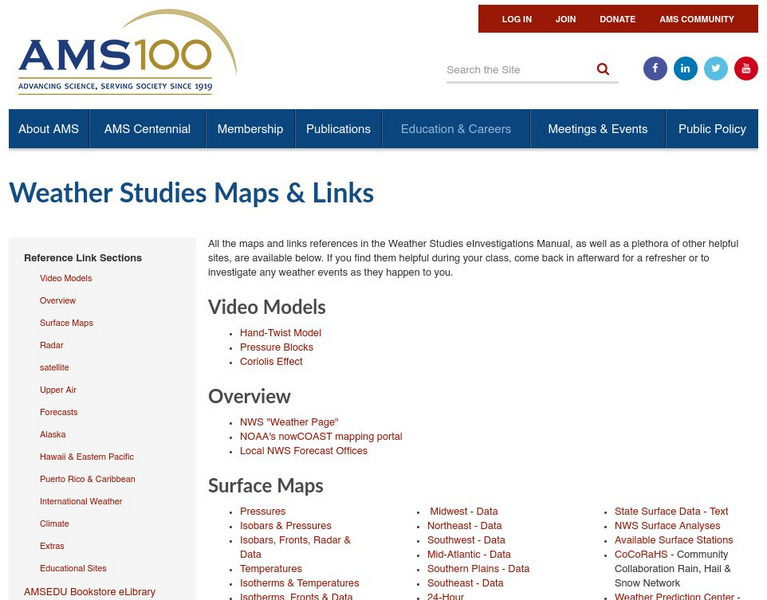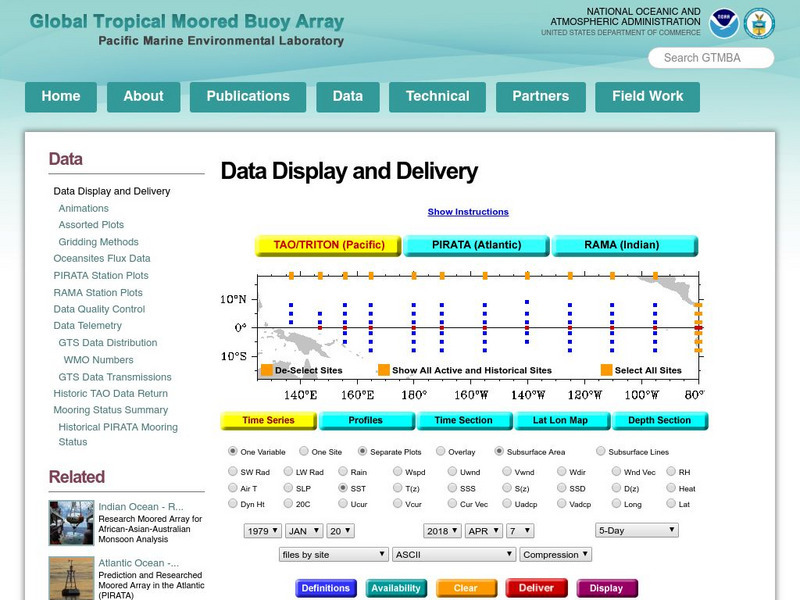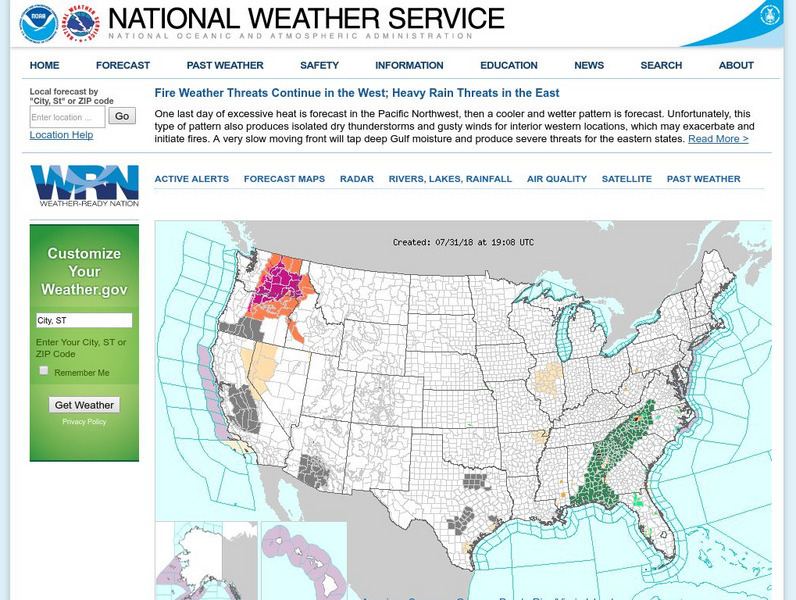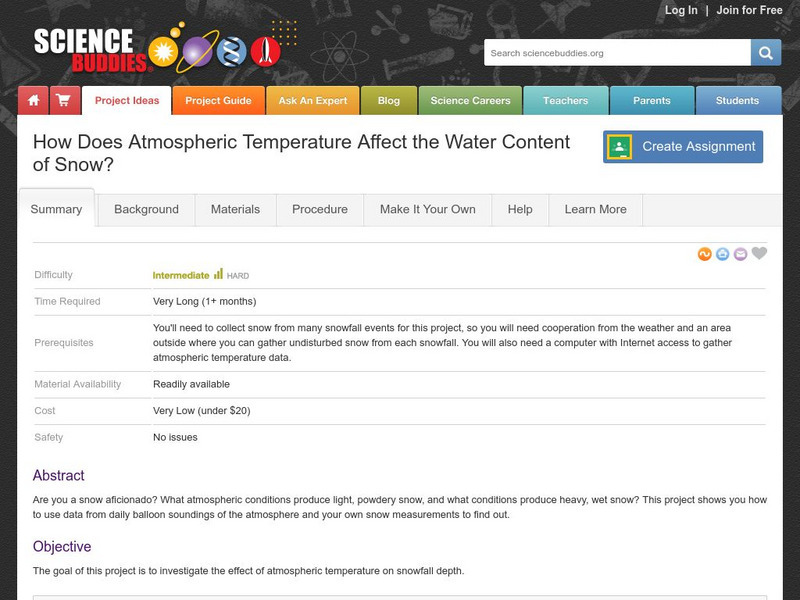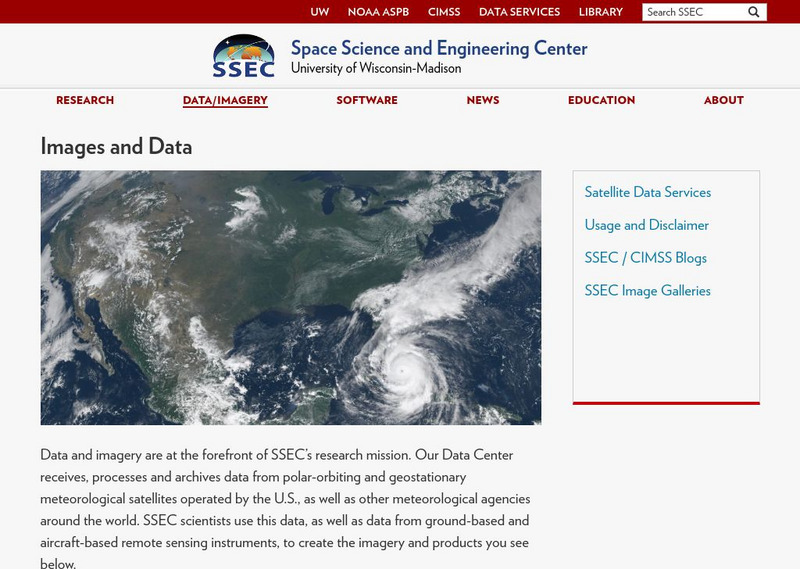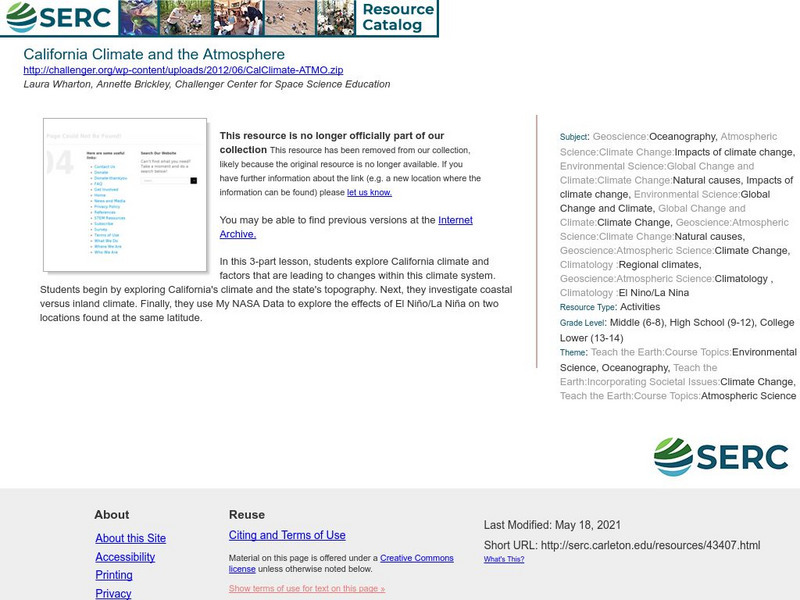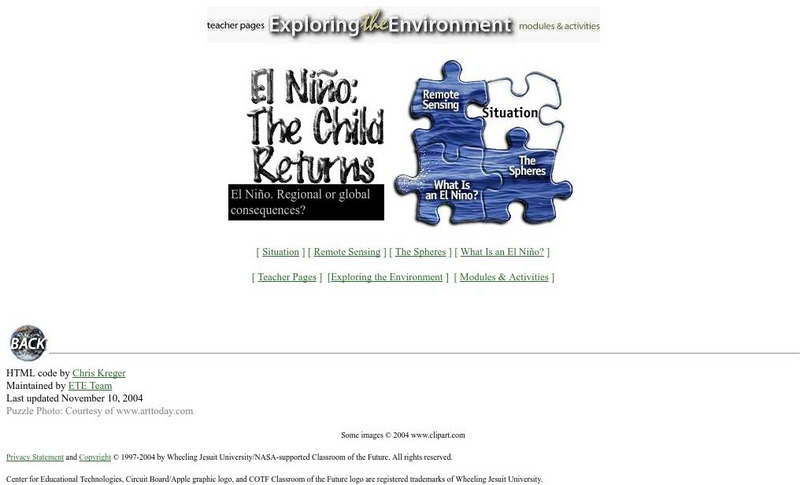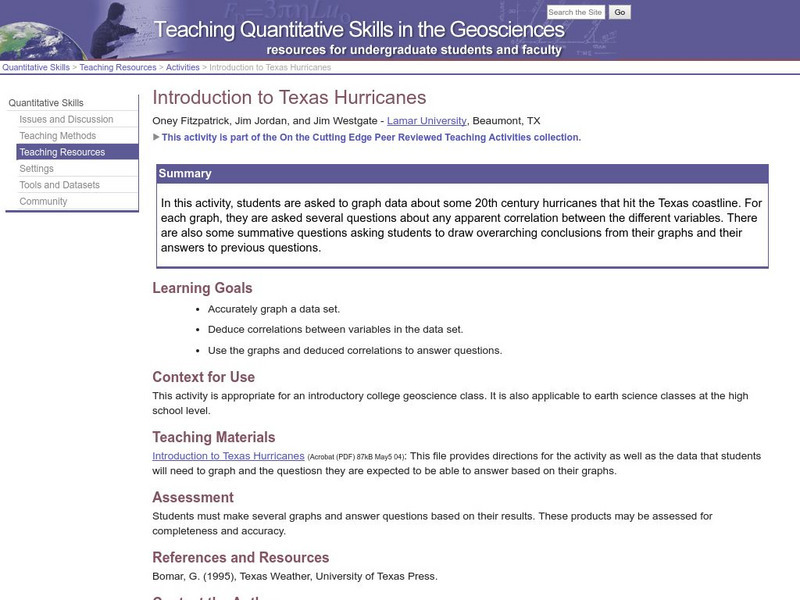Science Buddies
Science Buddies: Using Weather Balloon Data to Map Atmospheric Temperature
Snow-capped mountains make a picturesque scene, especially in summertime when the peaks are in such contrast to the warmth below. This project shows you a way to see how temperature changes with altitude using data collected twice daily...
University Corporation for Atmospheric Research
Ucar: Weather and Climate Data Exploration
Students explore the relationship between weather and climate by graphing weather temperature data and comparing with climate averages.
CK-12 Foundation
Ck 12: Earth Science: Collecting Weather Data Study Guide
This comprehensive study guide covers the main terms and concepts needed for an earth science unit on collecting weather data. Review questions are included at the bottom of the study guide.
Other
American Meteorological Society: Data Streme Atmosphere
This site provides an extensive amount of weather information. Includes current information, forecasting, and historic weather related events. Weather map symbols and terminology explained.
NOAA
Noaa: Pmel: Tropical Atmosphere Ocean Project: Tao/triton Data Display
Resource features real-time data from moored ocean buoys for improved detection, understanding, and prediction of El Nino and La Nina with diagrams.
NOAA
Noaa: Weather and Atmosphere
The collections in this thematic area provide educational resources that introduce concepts of weather and atmosphere. It provides activities and data for exploring weather and atmospheric sciences, and link to emerging research on these...
National Weather Service
National Weather Service
Official United States Weather Bureau source for weather maps and forecasts. Contains forecasts, maps, warnings, data, current conditions, and storm warnings.
NOAA
Noaa: National Climatic Data Center: Groundhog Day
Find background about Groundhog Day and the folklore involved. Look through the charts that show how closely Punxsutawney Phil's predicitions align with the actual weather.
Science Buddies
Science Buddies: How Atmospheric Temperature Affects the Water Content of Snow?
If you're lucky enough to live in a place that gets snow in winter, you know that the feel of the snow can vary a lot. Sometimes it can be light and fluffy, and other times heavy and wet. This project shows you how to use data from daily...
TeachEngineering
Teach Engineering: Mind Bending Gps Occultations
Students learn about the remote sensing radio occultation technique and how engineers use it with GPS satellites to monitor and study the Earth's atmospheric activity. Students may be familiar with some everyday uses of GPS, but not as...
University of Wisconsin
Ssec: Real Time Imagery and Data: Satellite Images of the Earth
Check out real-time satellite photos of the earth to study weather patterns.
University Corporation for Atmospheric Research
Ucar: Project Sky Math
Teachers will be interested to explore the SkyMath module, and the 16 classroom activities at this site. In this program, students will collect and record real-time weather data to analyze. Data analysis, graphing, number relationship,...
Other
Canterbury Environmental Education Centre: Weather Explorer
A look at the weather, how it is measured, and how it is caused. Learn what weather is like all over the world, how global warming is affecting our planet, and how "extreme" conditions like hurricanes, tornadoes, floods, and drought...
Science Buddies
Science Buddies: Dry Spells, Wet Spells: How Common Are They?
Here's a project that looks at what the weather was like for over a hundred years. The goal of the project is to compare long-term precipitation patterns in different regions of the country. You will work with historical climate data,...
NASA
Nasa Earth Observatory: Should We Talk About the Weather?
Discover how scientists use the BOREAS to gather data such as heat, carbon dioxide, water vapor, and more to see what role these levels have on climate changes.
TeachEngineering
Teach Engineering: Weather Basics
Students are introduced to the basics of the Earth's weather. Concepts include fundamental causes of common weather phenomena such as temperature changes, wind, clouds, rain and snow. The different factors that affect the weather and the...
Texas Instruments
Texas Instruments: Sunrise, Sunset: Weather Match
Students determine the relationship between temperature and light intensity. They use a Temperature Sensor and a Light Intensity Sensor to collect temperature and light intensity data for a period of 24 hours. They understand the effect...
Science Education Resource Center at Carleton College
Serc: California Climate and the Atmosphere
In this 3-part lesson, students explore California climate and factors that are leading to changes within this climate system. Students begin by exploring California's climate and the state's topography. Next, they investigate coastal...
University Corporation for Atmospheric Research
Ucar: Unidata: Conventional Weather Reports
This resource talks about how the stations report their information. Several examples of how different universities compile the information are provided.
Science Education Resource Center at Carleton College
Serc: Danger in the Air
In this learning module, young scholars are involved in an observational study of air pollutants in the atmosphere. The students collect and examine air quality and weather data, looking for correlations between weather and air quality.
Center for Educational Technologies
Exploring the Environment El Nino: The Child Returns
Use remote sensing data and background information to look at regional and global consequences of El Nino. Try working with the 'situation' to test your understanding.
NOAA
Noaa: Pmel: El Nino Theme Page
The National Oceanic and Atmospheric Administration (NOAA) sponsors this El Nino and La Nina resource site that features current and historic information about these weather systems with diagrams.
Science Education Resource Center at Carleton College
Serc: Introduction to Texas Hurricanes
In this activity, students are asked to graph data about some 20th century hurricanes that hit the Texas coastline. For each graph, they are asked several questions about any apparent correlation between the different variables. Students...
University Corporation for Atmospheric Research
Ucar: Anatomy of a Storm's Clouds
Students analyze cloud data from a storm that crossed the United States in late November 2019. They identify cloud types from photos of the sky in various locations to identify the zonation of clouds across a cold and warm front.


